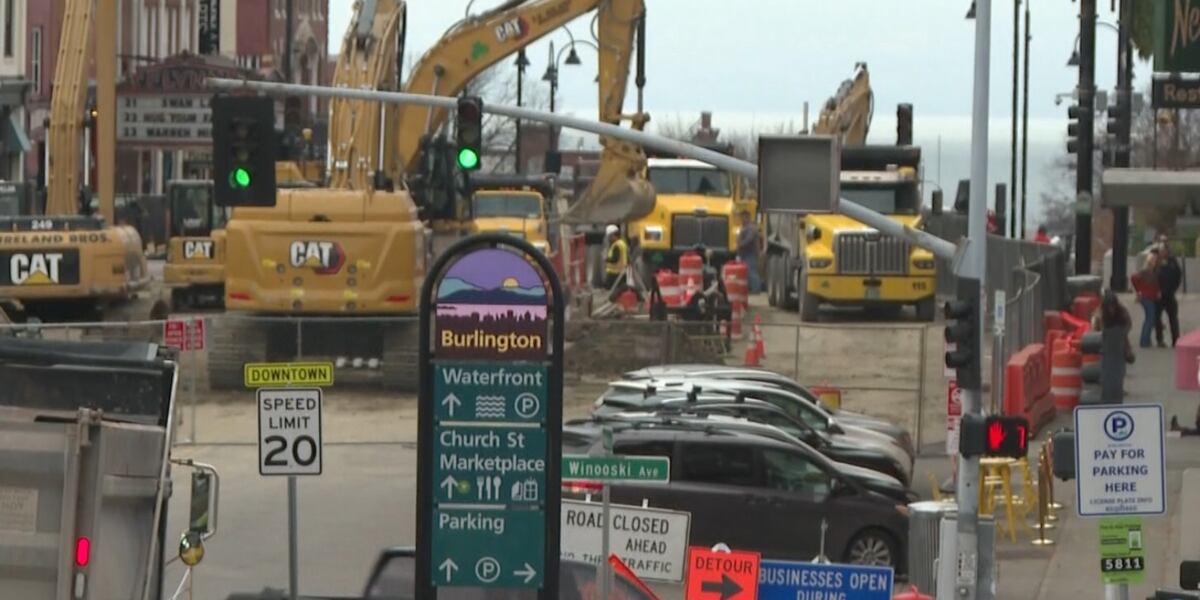Travel
Pandemic ‘revenge travel’ is over. That could benefit Up North travelers

Tourism leaders say the end of pent-up demand for travel post-pandemic, combined with more hotel rooms coming online, could help travelers avoid lodging price spikes heading into peak travel season.
Visitors bureau leaders in multiple Northern Michigan tourism hotspots all say they are expecting a stabilization of hotel rates coming out of the pandemic, which brought on swift price increases when demand soared.
“I would say we’re probably at a level (with rates) that will remain consistent for a while,” said Jim Powell, executive director of the Petoskey Area Visitors Bureau. “I don’t see a big jump this summer. I don’t see it falling off. I think they’re in that fine-tuning stage because we had so much rapid growth there (during the pandemic). I think every property is looking at their numbers individually and saying ‘OK, maybe we went a little too high here. Maybe we’re a touch too low here.’”
Trevor Tkach, president and CEO of Traverse City Tourism, also said he’s not expecting big increases in rates this year, though it can be hard to say when consumers ultimately drive rate changes.
Keep up with all things West Michigan business. Sign up for our free newsletters today.
“You don’t always know the tipping point until you hit it,” he said. “The reality is, I don’t think we’ve grown our rates any faster than anyone else. We were already a premium price destination, and so we’ve maintained that. … But the consumer, they hold all the cards. If the confidence shifts at any point during the summer, and that could happen, we’ll see what the response (in hotel rates) might be.”
During the Pure Michigan Governor’s Conference on Tourism last month in Kalamazoo, one theme was the anticipated leveling off of local and regional travel spending after pent-up demand peaked post-pandemic, and inflation began hitting pocketbooks.
“I think the headline for the impending summer season in Michigan is that the ridiculously named ‘revenge travel’ period is dead,” said Justin Winslow, president and CEO of the Michigan Restaurant & Lodging Association. “In its wake, we find something more akin to what we saw before the pandemic, which was modest, if uneven growth.”
Kelly Wolgamott, interim vice president for the state tourism office Travel Michigan within the Michigan Economic Development Corp., echoed that observation.
“There’s a lot of disruptors out there when we talk about consumer trends,” she said. “There’s inflationary pressures, so there’s only so many dollars people have to travel, and what we called the ‘revenge traveler’ following the pandemic started to subside last year.”
When inflationary pressures squeeze local and regional travel budgets, Michigan sees a dip in visitation, Wolgamott said, which, based on the law of supply and demand, can mean lower room rates. While that’s good for visitors, it’s not good for hotels, which have higher expenses now thanks to the rising cost of goods and labor.
“That (poses) a challenge for us, in how we can make that considerable outreach, not only within the U.S., but also internationally,” Wolgamott said, especially with fewer Pure Michigan advertising dollars in the proposed 2024-25 state budget than tourism officials hoped for this year.
“International tourists are extremely important for the state,” Wolgamott added. “They stay longer, they spend more money, and we’re the perfect product compared to New York, L.A. and Florida, which are very, very high as far as pricing, and Michigan is the best value price opportunity for those international travelers. So we’re working hard with our partners to get the international traveler here.”
Rates in Traverse City
Tkach, of Traverse City Tourism, said the bureau’s coverage area of Benzie, Grand Traverse and Leelanau counties experienced hotel room rate growth of about 3% last year. Rates currently vary from about $150 to $200 per night on average, depending on the day of the week, the season and the property.
For this year, he said no significant rate growth is expected, partly because of the continued growth of inventory.
About 500 rooms are being added to the Grand Traverse region’s inventory of about 4,000 rooms, between two hotels that came online part way through last year and several being built this year. That includes a Tru by Hilton that opened last March in Garfield Township, the independent Alexandria Inn that opened in East Bay Township in June and the new Avid Hotel that opened a couple of weeks ago, also in East Bay Township. Other hotels under construction include a Residence Inn & Suites and a Home2Suites by Hilton in East Bay and a new Fairfield by Marriott in Garfield Township, all of which Tkach expects will open within a year.
That’s in addition to the area’s 2,000 short-term rentals that have been added in the past 10 to 15 years, he said, noting that there tend to be rooms at every price point.
Tkach said it remains to be seen whether the demand will match supply, or whether potential oversupply could drive down rates. He tends to think that won’t be a problem until winter arrives.
“There’s a lot of variables that affect rates,” he said. “… For us, we’ve built up a recognizable brand over the years, and so I think Traverse City has allowed itself an opportunity to dictate a different type of rate structure and maybe hold on to that structure a little bit longer than others will be able to, and the proof was in the outcomes. We continue to see a lot of visitation.”
But he also said “consumer behavior is unpredictable,” so only time will tell if the bureau’s prediction for another strong peak travel season comes true.

A look at greater Petoskey
The Petoskey Area Visitors Bureau covers part of northern Charlevoix County, Petoskey, Harbor Springs, the Boyne Valley area, and Alanson, which sits along US-31 between Little Traverse Bay and Burt Lake.
The visitors bureau has 28 member hotel operators with about 2,500 rooms. Another 44 rooms are coming online this spring, as the new Otis Harbor Springs Hotel is now accepting reservations.
Powell said his area’s average daily rates for 2021-2023 were about $188 for that three-year period. Hotels saw “incredible” rate growth of 8% to 16% in 2021 and 2022 based on higher demand. He expects a more “normal” growth rate of about 2% to 4% in 2023 and 2024.
He said it’s important to keep in mind that the average rate spans a wide spectrum of prices, from $600 to $800 per peak season night at a high-end property like the Inn at Bay Harbor, to $469 for a room at the Perry Hotel, to $79 for a basic Super 8 in Petoskey.
As to whether room rates are “too high,” Powell said it’s a question being discussed across the state.
“Northern Michigan prices have gone up,” he said. “That’s very clear in the last few years, that we may have priced some people out of that entry-level product, and they may have chosen to go to a different location that might provide a more affordable rate. But likewise, we (in Petoskey) get a benefit from the trickle-down from some other places whose rates may have gone up even higher than ours,” such as Mackinac Island, he added.

The view from Mackinac Island
Steph Castelein, events and content manager for the Mackinac Island Tourism Bureau, acknowledged prices were higher last year on average across Mackinac Island’s 1,600 rooms.
Though the 2023 visitation numbers aren’t in yet, her gut feeling is that consumer spending from day trippers was softer last year, and there likely were fewer visitors than the 1.2 million people who came in 2022. But the bureau still exceeded its revenue goals, largely because rates were up.
Castelein said she expects rates will hold fairly steady for the 2024 peak season. A May 7 search of the Mackinac Island hotel rooms still available for mid-July showed options ranging from $289 at the Murray Hotel on Main Street to $597 up the hill at the Grand Hotel.
“I think we’ve kind of hit our max for a few years right now, so I can see rates staying similar,” Castelein said.
One indicator of that, she said, is that another 30 rooms are coming back online this year, thanks to the completion of the two-year-long renovation of the Inn at Stonecliffe adding supply to the market. The luxury property’s July prices range from about $492 for a queen room up to $3,000 for a night in one of the summer cottages.
Powell, from Petoskey, said just from anecdotal conversations, he thinks there’s more competition for consumers’ budgets, including for travelers who might be considering “long haul” international destinations. That makes the growing practice of dynamic pricing essential, rather than a set-it-and-forget-it approach to peak-season rate setting.
“At the end of last summer … consumers were really returning some of their pre-pandemic behaviors,” he said, then laughed: “If one more person (talks) about their trip to Spain, or somewhere international, I swear.”
More from Crain’s Grand Rapids Business:
Former Ottawa Beach Inn near Holland to be revived under new owners — with a nod to the past
Demolition starts for Acrisure Amphitheater
Grand Rapids entrepreneur launches e-commerce platform for diverse-owned businesses









